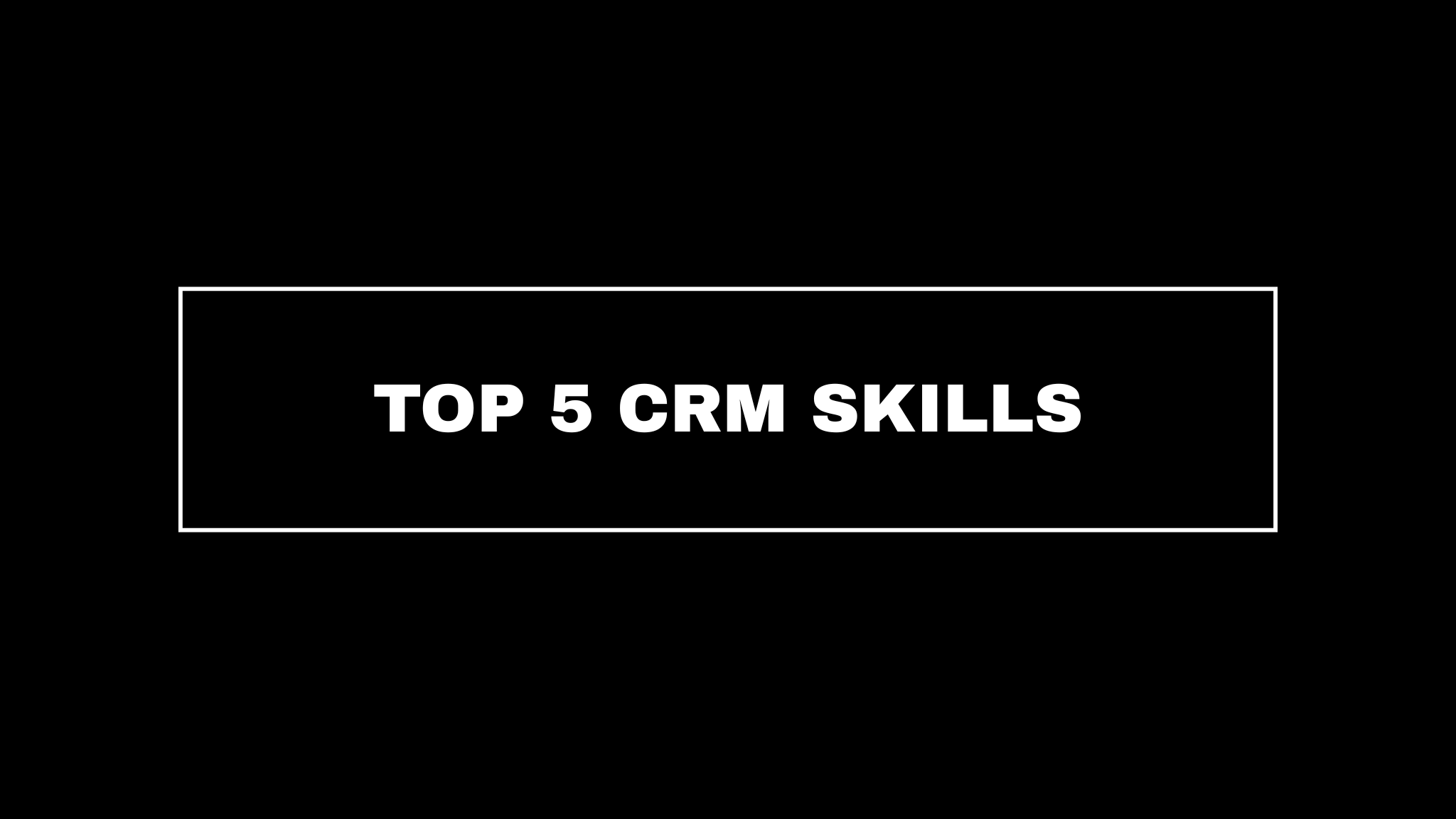According to Salesforce’s comprehensive guide on customer relationship management, CRM systems are becoming increasingly sophisticated, requiring professionals who can translate multiple data streams from sales, customer service, marketing, and social media into actionable business insights. This evolution means that traditional CRM skills alone aren’t enough anymore—you need a broader, more strategic skill set to stand out in today’s competitive job market.
The challenge many CRM professionals face is finding unbiased, comprehensive resources to develop these skills. Most training programs are controlled by technology vendors who naturally focus on their own platforms, leaving gaps in your overall professional development. That’s where building a diverse skill set becomes crucial for long-term career success.
1. Data Analysis and Business Intelligence
Data analysis has become the cornerstone of effective CRM management. But we’re not just talking about running basic reports—today’s CRM professionals need to understand how to interpret complex data patterns, identify trends, and translate findings into strategic recommendations that drive business growth.
The ability to work with business intelligence tools, understand statistical concepts, and present data-driven insights to stakeholders sets you apart from professionals who only know how to input and retrieve information. Companies are looking for CRM experts who can answer the “why” behind the numbers, not just the “what.” This skill directly impacts revenue and customer satisfaction, making you invaluable to any organization.
When you can confidently walk into a meeting and explain how customer behavior data suggests a shift in marketing strategy, or how sales pipeline analysis reveals bottlenecks that are costing the company deals, you’re no longer just a CRM user—you’re a strategic business partner.
2. Marketing Automation and Customer Journey Mapping
Understanding the complete customer journey and how to automate touchpoints along the way has become essential for CRM career advancement. This isn’t about setting up basic email campaigns—it’s about orchestrating sophisticated, multi-channel experiences that nurture prospects and retain customers.
Modern CRM professionals need to understand how marketing automation integrates with customer relationship management systems, how to design workflows that respond to customer behavior, and how to measure the effectiveness of automated campaigns. The ability to map out complex customer journeys and identify optimization opportunities makes you a valuable asset to marketing and sales teams alike.
Companies are increasingly looking for professionals who can bridge the gap between CRM data and marketing execution. When you understand both sides of this equation, you become the person who can solve problems that others can’t even see.
3. AI and Machine Learning Applications
Artificial intelligence is transforming how CRM systems operate, and professionals who understand AI applications have a significant competitive advantage. This doesn’t mean you need to become a data scientist, but you should understand how AI can enhance customer relationship management processes.
From predictive analytics that identify which leads are most likely to convert, to chatbots that handle initial customer inquiries, AI is becoming integrated into every aspect of CRM. Professionals who can identify opportunities for AI implementation, manage AI-powered tools, and interpret machine learning insights are positioning themselves for leadership roles.
The key is understanding how AI can solve real business problems rather than just being fascinated by the technology itself. When you can articulate how machine learning can improve customer segmentation or how predictive analytics can optimize sales forecasting, you’re speaking the language that executives want to hear.
4. Strategic Communication and Stakeholder Management
Technical CRM skills will only take you so far if you can’t effectively communicate with different stakeholders across your organization. The ability to translate technical concepts into business language, manage expectations, and build consensus around CRM initiatives is what separates good CRM professionals from great ones.
This skill involves understanding how different departments use CRM data, being able to present information in ways that resonate with various audiences, and managing the change management aspects of CRM implementations or upgrades. You need to be comfortable presenting to C-level executives as well as training end users.
Strong communication skills also mean being able to gather requirements effectively, manage project timelines, and navigate the political dynamics that often surround CRM initiatives. When you can successfully lead cross-functional projects and get buy-in from skeptical stakeholders, you’re demonstrating leadership potential that companies value highly.
5. Process Optimization and Change Management
The most successful CRM professionals are those who can look at existing processes and identify opportunities for improvement. This requires a combination of analytical thinking, creativity, and understanding of how people actually work versus how processes are supposed to work on paper.
Process optimization in CRM involves understanding workflow bottlenecks, identifying redundancies, and designing solutions that make teams more efficient without sacrificing data quality. But technical solutions are only part of the equation—you also need change management skills to ensure that process improvements are actually adopted.
Companies are always looking for professionals who can drive efficiency improvements and help teams adapt to new ways of working. When you can demonstrate a track record of successful process improvements that resulted in measurable business outcomes, you become the type of professional that organizations compete to hire.
Accelerating Your CRM Career Development
Developing these skills requires more than just taking vendor-specific training courses. You need access to diverse perspectives, real-world case studies, and a community of professionals who are facing similar challenges. The most successful CRM professionals are those who actively seek out opportunities to learn from peers and stay current with industry trends.
Building a strong professional network within the CRM community gives you access to insights that you simply can’t get from traditional training programs. When you can discuss challenges and solutions with other professionals who understand your specific role, you accelerate your learning and discover opportunities that aren’t posted on general job boards.
Ready to take your CRM career to the next level? Join our community of CRM professionals who are committed to advancing their careers through networking, continuous learning, and sharing real-world insights. We provide the unbiased resources and professional connections you need to develop these essential skills and unlock new career opportunities.
Frequently Asked Questions
How long does it take to develop these CRM career skills?
The timeline varies depending on your current experience level and how much time you can dedicate to skill development. Most professionals see meaningful progress in 3-6 months with consistent effort, but mastering these skills is an ongoing process. The key is starting with one area and building momentum rather than trying to tackle everything at once.
Do I need technical certifications to advance my CRM career?
While certifications can be helpful, employers are more interested in your ability to apply skills to solve real business problems. Focus on building practical experience and being able to demonstrate measurable results from your CRM initiatives. Certifications should support your experience, not replace it.
What’s the best way to gain experience with AI and machine learning in CRM?
Start by exploring the AI features already available in your current CRM system. Many platforms now include predictive analytics and automation tools that you can experiment with. Additionally, look for opportunities to participate in pilot projects or volunteer to research AI applications for your organization. Hands-on experience, even on a small scale, is more valuable than theoretical knowledge.



